Tiokasin Ghosthorse
Voice of the Earth, Spirit of the Lakota
In an age of climate collapse, cultural fragmentation, and spiritual disconnection, the voice of Tiokasin Ghosthorse cuts through with rare clarity and compassion. A revered member of the Cheyenne River Lakota Nation, Ghosthorse is not only an activist but a teacher, musician, broadcaster and spiritual guide. Through his life’s work, he bridges the ancient and the contemporary, reminding us of the values, wisdom, and ways of being that modern society urgently needs to remember. Here we explore his life, his philosophy, his impact and the enduring legacy he continues to shape.

“We need to stop learning about the Earth and start learning from the Earth.”
Tiokasin Ghosthorse
All of our content is free to access. An independent magazine nonetheless requires investment, so if you take value from this article or any others, please consider sharing, subscribing to our mailing list or donating if you can. Your support is always gratefully received and will never be forgotten. Click here to buy us a metaphorical coffee or two.
Table of Contents
*All Book Images Open a New tab to our Bookshop
**If you buy books linked to our site, we get 10% commission from Bookshop.org, whose fees support independent bookshops.
Early Life: Formed by Struggle, Rooted in Resilience
Tiokasin Ghosthorse is a Lakota elder, musician, radio host, teacher, and peace activist whose life’s work has been dedicated to elevating Indigenous knowledge systems and renewing humanity’s relationship with the Earth. A member of the Cheyenne River Lakota Nation in South Dakota, Ghosthorse stands as a bridge between ancient wisdom and contemporary crises, speaking not only on behalf of his people but also on behalf of the Earth itself. His contributions span media, music, education, and international advocacy, grounded in a worldview that sees the Earth not as a resource, but as a living relative.
Ghosthorse’s early life was shaped by the often painful legacy of colonization and systemic displacement. Like many Indigenous people of his generation, he grew up witnessing firsthand the cultural erasure and economic hardship inflicted on Native communities. Yet from these experiences, he emerged not embittered, but deeply committed to healing – not only for his people, but for the entire planet. He often speaks about the intergenerational trauma caused by colonization and the boarding school system, yet insists on moving beyond the language of victimhood. Instead, he emphasizes the resilience and continuity of Indigenous cultures, their languages, and especially their spiritual relationships with the Earth.

The Philosophy of Relationality and the Earth
At the core of Ghosthorse’s teachings is the Lakota philosophy of relationality, the understanding that all things are interconnected. In Lakota cosmology, the phrase Mitakuye Oyasin, meaning “we are all related,” is more than a greeting – it is a worldview. Ghosthorse has spent much of his life helping others, both Indigenous and non-Indigenous, comprehend the depth of this concept. He teaches that the Earth is not a passive backdrop to human activity, but a dynamic participant in a web of life. “We have to learn to live with the Earth, not on the Earth,” Ghosthorse often says – a statement that encapsulates his deep ecological consciousness.

First Voices Radio: A Platform for Indigenous Knowledge
This philosophy found one of its most enduring and far-reaching expressions in First Voices Radio, the groundbreaking program Ghosthorse founded and hosted for 33 years. Until his final broadcast on July 6, 2025, the show served as a vital platform for Indigenous voices across the globe. Through thoughtful conversations with Native leaders, artists, scholars, and activists, Ghosthorse wove a rich tapestry of stories and insights that challenged dominant narratives and offered profound alternatives to Western worldviews. Broadcast in New York City and Seattle, the program stood as a powerful testament to the role of Indigenous media in resisting erasure and cultivating global solidarity. At the time of writing, the archives at firstvoicesradio.org are being updated to preserve and share this invaluable legacy.

Global Recognition and the Power of Indigenous Languages
Yet Ghosthorse’s influence extends far beyond the airwaves. As an internationally recognized speaker and educator, he has lectured at institutions such as Yale, Columbia, and the United Nations, offering insights into topics ranging from climate change to language revitalization. In a 2016 nomination for the Nobel Peace Prize by the International Institute of Peace Studies and Global Philosophy, his contributions to peace and intercultural dialogue were formally acknowledged. The nomination underscored how Ghosthorse’s work addresses not only environmental and Indigenous rights, but also the deeper cultural assumptions that underpin modern civilization’s most pressing crises.
“The original instructions were to live in respect, in harmony, in relationship with the land and each other. That’s not a metaphor — it’s survival”
Tiokasin Ghosthorse
Central to Ghosthorse’s teachings is the power of Indigenous languages. For him, language is not merely a tool of communication but a vessel of philosophy and spiritual insight. He often notes that in the Lakota language, there is no word for “domination.” This absence speaks volumes about the values embedded in Indigenous ways of knowing. In contrast to the objectifying tendencies of Western languages, Lakota expresses a living connection between beings. Ghosthorse argues that the loss of Indigenous languages is not just a cultural tragedy but an epistemological one – the disappearance of entire ways of understanding the world. “The Lakota language comes from the land; it is shaped by the wind, the rivers, the birds,” he explained in an interview. “When we lose the language, we lose a way of relating to the Earth.”
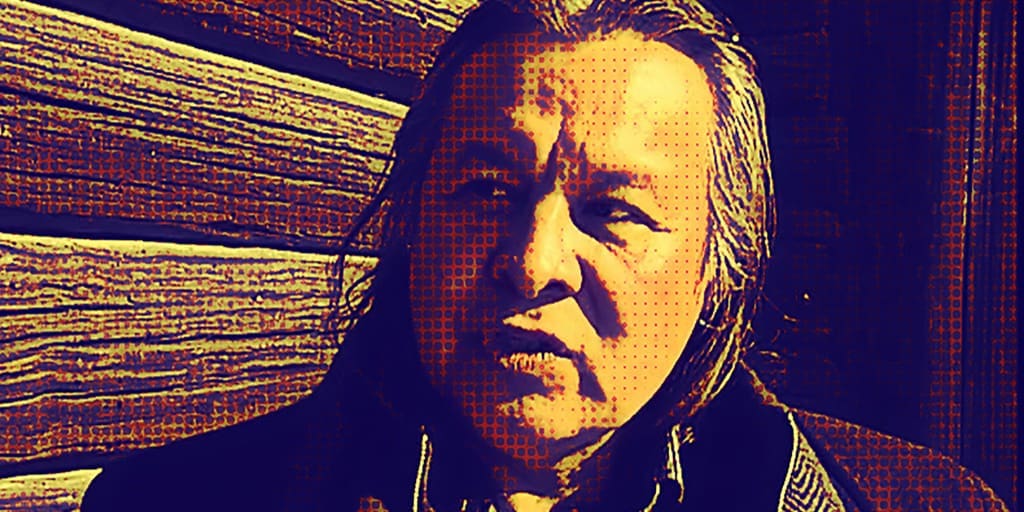
Flute as Prayer: Music, Ceremony and Cultural Continuity
Another major facet of Ghosthorse’s legacy is his music. A master of the Lakota cedar flute, he uses sound not only as art but as prayer. His performances, often described as meditative and healing, draw on centuries-old traditions that use music to harmonize the self with the cosmos. In 2016, he was awarded a National Fellowship in Music from the Native Arts and Cultures Foundation. His 2019 nomination for Best Instrumental Album at the Indigenous Music Awards further cemented his reputation as a cultural bearer. For Ghosthorse, music is a sacred act, a way of listening to and speaking with the Earth. He reminds his audiences that sound has power – not only to heal, but to awaken.
Speaking Truth to Power: A Critique of Modernity
Despite his increasing prominence in global circles, Ghosthorse remains rooted in Lakota values of humility and service. He often critiques the commodification of spirituality and the extractive tendencies of Western environmentalism. He warns against what he calls “performative allyship” and encourages deeper commitments to justice, listening, and land-based wisdom. “You cannot save what you do not love,” he said in a conversation on the Earth Charter Podcast. “And you cannot love what you do not see as your relative.”
Ghosthorse’s impact can be felt across multiple spheres. In academia, he challenges Eurocentric frameworks, insisting that Indigenous knowledge systems be treated with respect, not romanticized or tokenized. In environmental circles, he calls for a fundamental shift in how humans relate to the planet – one that goes beyond policies and technologies to a spiritual reorientation. In media, he provides a rare and consistent platform for Native perspectives, fostering solidarity and intergenerational dialogue.

A Different Kind of Future: Rethinking Time, Progress and Relationship
One of his most powerful critiques is aimed at the notion of progress. Ghosthorse questions the dominant linear model of time and development, proposing instead a cyclical, relational approach. In his words: “Western civilization has mistaken accumulation for evolution.” This critique resonates in an age of climate collapse, where technological solutions often mask deeper cultural disconnections. Ghosthorse does not reject modernity outright, but he insists on the necessity of grounding it in older, more holistic understandings of life.
His influence also resonates with younger generations. As Indigenous youth movements gain momentum – whether in protests against pipelines or in cultural revitalization efforts – Ghosthorse serves as a living example of what it means to walk in both worlds: one foot in tradition, the other in global dialogue. His work reminds young people that their heritage is not a relic of the past but a blueprint for the future. In this way, he joins other contemporary Indigenous thinkers such as Winona LaDuke, Robin Wall Kimmerer, and John Trudell in shaping a resurgence of Indigenous intellectual and cultural life.

The Legacy Tiokasin Ghosthorse and the Invitation to Listen
Ghosthorse’s legacy is already taking root in communities, classrooms, and consciousness. He offers not only critique, but a path forward – one that demands humility, listening, and a return to Earth-centered values. His work is not easy or convenient, and he does not offer simple answers. Instead, he offers presence. A way of being. A different rhythm.
In today’s climate of disconnection and ecological precarity, Tiokasin Ghosthorse stands as a voice not just of warning, but of possibility. He invites us to listen – not only to him, but to the wind, the water, the trees. In doing so, we may rediscover not only the Earth, but ourselves.
*Visit and Follow Tiokasin Ghosthorse on Facebook
**Visit First Voices Radio
“Peace is not the absence of war. It is the presence of understanding.”
Tiokasin Ghosthorse





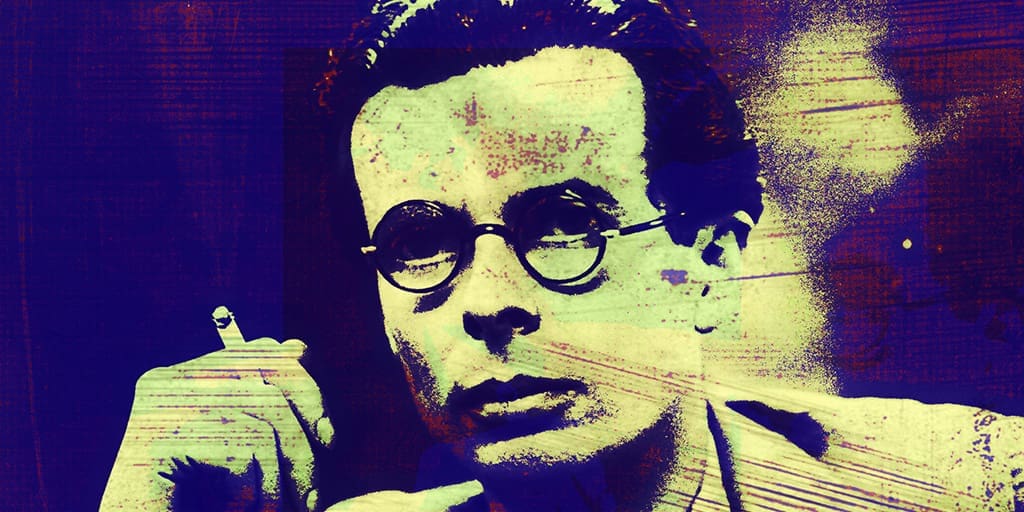





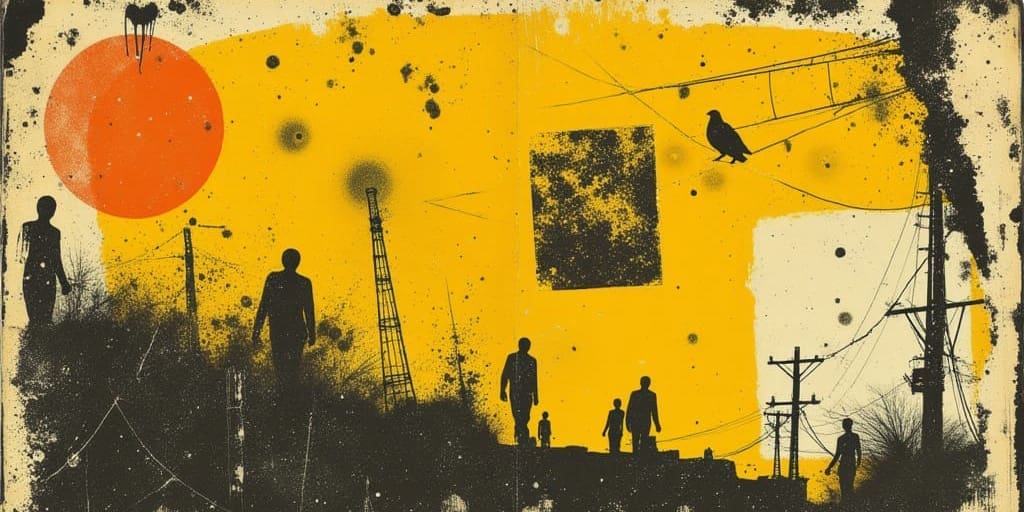




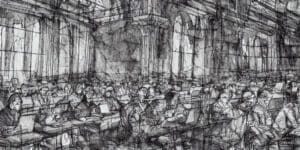

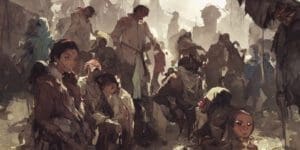























Leave a Comment